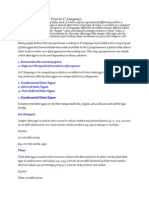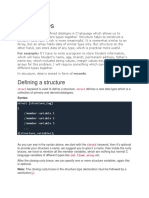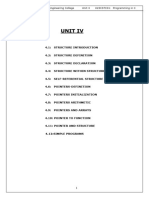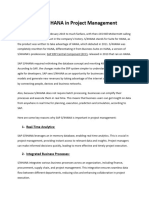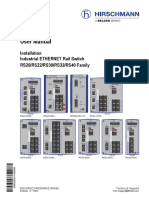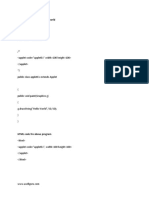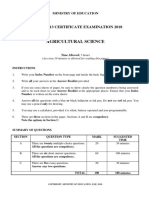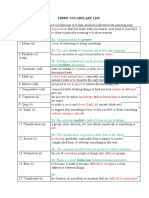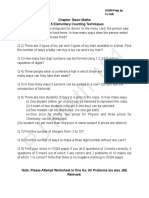0% found this document useful (0 votes)
16 views5 pagesC Basic2
The document explains the concept of data types in C, detailing basic built-in types such as int, float, char, and void, along with more complex types like arrays, pointers, enums, structs, and unions. It highlights the differences between structures and unions, particularly in terms of memory allocation and data access. Additionally, it provides examples of how to define and use these data types in C programming.
Uploaded by
jasimshanto20215Copyright
© © All Rights Reserved
We take content rights seriously. If you suspect this is your content, claim it here.
Available Formats
Download as PDF, TXT or read online on Scribd
0% found this document useful (0 votes)
16 views5 pagesC Basic2
The document explains the concept of data types in C, detailing basic built-in types such as int, float, char, and void, along with more complex types like arrays, pointers, enums, structs, and unions. It highlights the differences between structures and unions, particularly in terms of memory allocation and data access. Additionally, it provides examples of how to define and use these data types in C programming.
Uploaded by
jasimshanto20215Copyright
© © All Rights Reserved
We take content rights seriously. If you suspect this is your content, claim it here.
Available Formats
Download as PDF, TXT or read online on Scribd
/ 5















